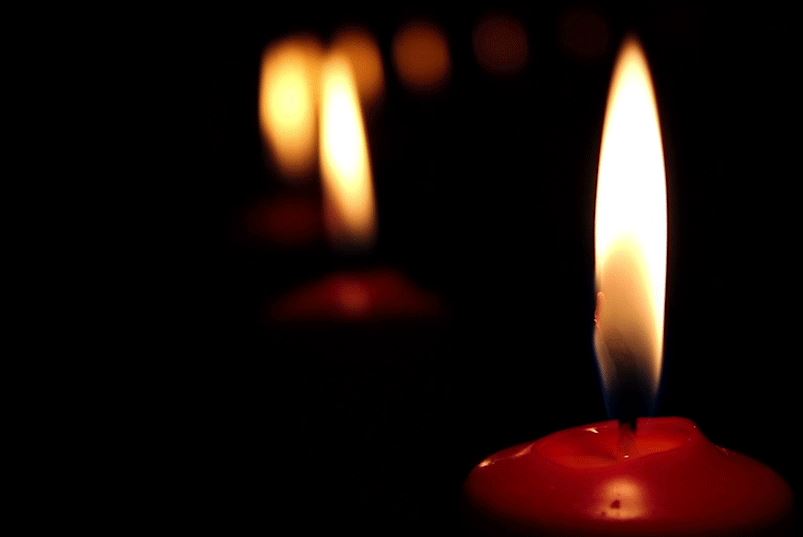4) Look Gently at Your Fears + Losses
“Look at my fears + losses? Are you kidding me?
Why would I want to do that?”
The spread of the coronavirus – and all of what’s happening right now in society – is triggering a lot of emotions inside of us. These range from fear, loss, and grief to frustration, anger, and powerlessness... So if you are feeling any of these, there’s good reason for it!
This pandemic has created the largest disruption of our lifetime. Our normal ways of being, living and working have been turned upside down. And that can leave us feeling deeply uncomfortable. For some, it's a loss of routine and structure, our sense of security, even our freedom. For others, it may be fears about the future. And for many, it's about the very real losses we are experiencing -- like our income, jobs, savings, and the people we love.
As a result, getting through this time is going to take more than just social distancing. It means that we will also need to look at what’s going on inside of us.... find ways of letting these feelings up... and grieve our losses... so we can stay emotionally healthy.
"That's easy to say... but it's hard to do!"
You're right. Looking at our fears and feelings can scare us... because it brings up things we’d rather not think + feel. It also might seem like these will overwhelm us; that we will get lost in them, and not be able to cope. Yet letting these thoughts and feelings up, so we can see them, and act on them (when needed), are an important part of dealing with a crisis.
Here are some ideas that may help:
1) First, let’s not beat around the bush. Looking at our fears will raise some uncomfortable thoughts. These may include:
- worries over losing our work, job or business.
- thoughts of not having enough money, or not being able to pay the our bills, rent, or mortgage.
- losing someone close to us (as well as grief about past losses).
- worries about not being able to cope.
2) We're all experiencing fears + losses. And these bring up emotions.
So there's no point in telling yourself not to think or feel this way. It’s simply how you are inside right now. And this needs to be heard and seen. What's important however, for your safety and for others is that:
"The fear, grief and anger we all experience
need to be felt, but not acted out."
Here is a list of questions you can ask yourself, which can help you become more aware of the issues, and losses, that are most meaningful for you.
3) Some of our fears for the future may happen, and some may not. But by looking at them, it helps us to become ready to deal with the ones we will need to face.
- That’s what public health leaders have done in this emergency. They’ve looked at what could happen (in spite of the scary prospects), and what we need to do to deal with it.
4) Even when we don’t look at them, losses and fears are still in our mind. And when unacknowledged, they can actually hurt us and others. For example, suppressed thoughts + feelings may:
- create headaches and other pain.
- reduce the effectiveness of our immune system.
- get expressed as judgment, rage, or attacks on others.
- stop us from speaking up or taking actions that are needed.
- drive us in to unhealthy habits, such as overeating, addictions – or into excessive behaviours such as over-buying or hoarding (like toilet paper!).
By looking at our fears, the hidden becomes visible. The scary ideas and feelings inside us get seen and felt. And we now have a chance to deal with what is causing them.
If you shake up a Coke bottle [or can] and you don't let it out, it's eventually going to come out sideways.
Grief is actually a good thing. It helps us get through the transitions of life. It helps us make it through the difficulties.
- Pastor Rick Warren
"I'm Sorry" (coronavirus version), sung by Janey,
adapted from John Denver
https://www.youtube.com/watch?v=okpzyGYRWxU&feature=youtu.be
4) How do we allow our fears + feelings to come up, in healthy ways?
Journalling can be very helpful. What is that? It’s talking with yourself on paper.
- Here you can ask yourself questions about how you are feeling, and what you are afraid of. Then write down your responses. Notice what other thoughts come up and write those down.
- Gently ask yourself more questions like: “What am I afraid of, if this happens? How will I feel? What can I do?”
- With deep compassion, let what is inside come out. This will help relieve some of the pressure, and allow you to see more clearly what’s actually going on inside.
Listen to guided imagery / meditation recordings, to help your open up your mind + emotions in a safe, private and supported way.
- Search YouTube for meditations or visualizations on subjects that may be helpful: e.g. fear, grief, loss, finding peace, etc.
- Look into the work of people like Louise Hay, and Belleruth Naparstek of Health Journeys. (Belleruth's recordings on dealing with grief, loss and forgiveness can be very helpful.)
- Don't force yourself to listen to, or do, anything that doesn't feel right. Respect yourself. Use recordings that feel good, nurturing, and healing for you.
Talk with someone you feel safe with, for example a trusted friend, coach, counsellor, clergy, or spiritual director.
5) Looking at our fears allows us to feel them. The purpose is not to overwhelm ourselves, or wallow in them. It's about accepting what is really going on inside. This allows us to heal with our experiences and memories, and eventually move past them.
- Do so gently. Be compassionate with yourself, as you would be with a good friend.
- Breathe gently, to ease the tension in your body.
- Allow your emotions up: Cry, feel your anger, or whatever is honest for you. But do so in contained ways, which don’t hurt others or yourself.
- Physical actions like putting your hand on your heart/chest, or hugging yourself, can also be helpful – to reassure the scared part of you that you’re okay.
- Don’t force or pressure yourself to see your thoughts or feel your emotions. Just let allow them to surface gently. Witness them with loving care and without judgment. Don't get stuck in them; if it feels like you are, stop and try again later another time.
6) You’ll know you’re letting fears up in healthy ways when, afterwards, you feel lighter, calmer or relieved. If you don’t:
- Try again later.
- Ask a friend to listen to you.
- Ask someone with experience/training – like a coach, counsellor, therapist, medical or mental health professional – for help.
7) Others in your life may need to share their fears as well.
When they do so, here are a few tips:
- Be present. Respectful. And listen fully.
- Be compassionate and empathetic.
- “Be with” the other person as they are. Don’t try to fix them, or tell them what to do. What we all need first is just to be heard, acknowledge, validated, and loved.
- Breathe, and feel your own feelings, as you listen to others’.
- Ask questions, if you feel it would be helpful
- Ask the other person if they want any feedback, thoughts or suggestions
(Note: If you see someone resisting your questions/ideas, it's time to step back and just listen.)
8) Seeing and dealing with our fears can help us to:
- feel safer and more secure – because we’ve actually thought about what might happen.
- cope more effectively – by making wiser choices about how to deal with situations we might actually need to face.
- be more helpful to others.
It will also bring more peace of mind... because we will have faced our hidden fears. And they will no longer be driving us, from inside, the way they were before.
Grief Resources During Covid 19, from FamiliesFirst.ca
Articles on loss, grief, hope, support, and funerals during coronavirus
https://www.familiesfirst.ca/grief-during-covid-19
(In case you're needing a hug right now,
but can't go out to get one,
here's one from us...)






